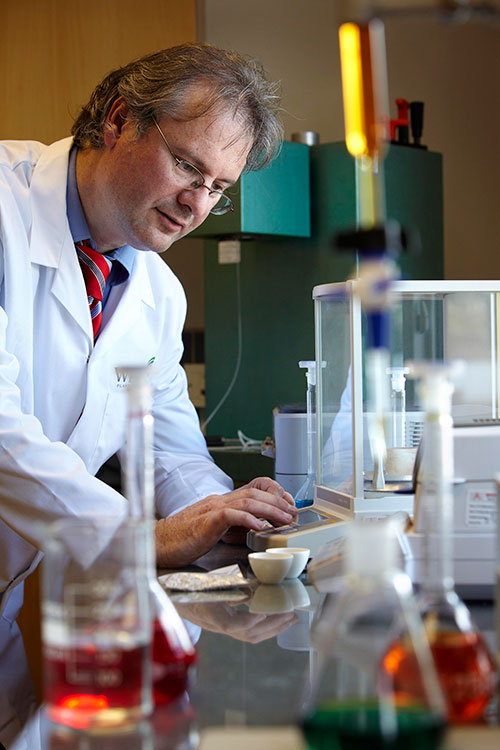Wells Plastics own internal test regime, Carbonyl Index Determination WPL 111105, utilises a modified version of ASTM D 5208-01 (Cycle C) test method. The ageing cabinet used contains UV lamps to simulate gentle outdoor sunlight. The temperature of the cabinet is maintained at 50°C according to the test method.
The samples are removed after fixed time periods and the carbonyl index determined by Infra-Red analysis, using a modified ASTM D 5576 test method. In addition the film is empirically assessed for friability and state of embrittlement. The carbonyl index at the point at which the film was embrittled is noted and presented as 100% embrittlement. The remaining carbonyl indices are calculated as a percentage of this and presented as a “Degree of Embrittlement”.


